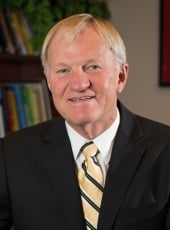
A very Happy and Healthy New Year to all FWF readers! Michigan Tech has been closed for all intents and purposes from December 23 to January 1, but things are starting to pick up as we prepare for the Spring 2018 semester, which begins on January 16. The weather has been rather cold, like in the single digits or below every day for the last two weeks, but we have also been getting a decent amount of powdery snow on a regular basis, and the ski conditions are as good as I have ever seen them. Not a bad time to be in Houghton if you ask me.
As we kick off the new year, I thought I would share with you some words from our university president, Dr. Glenn Mroz. He read these comments as his opening remarks at the most recent meeting of the university Board of Trustees, the day before our December commencement. He meant them as a sort of holiday message, but I believe they work just as well for the new year. This will be Dr. Mroz’ last full semester as President of Michigan Tech, and with these words I think he sets just the right tone for the future of the university.
Ongoing political events, the turn of the calendar and our campus-wide discussion of the University’s strategic plan got me thinking about the word “value.” It’s used everywhere. Value stocks. Value voters. Value of education. Value of a degree. Family values. “Value” seems in vogue now more than ever. Perhaps because we think we know what it means; we think that it communicates a shared sense of importance or impact to whatever it’s attached to, and for whomever we may be communicating with. Or, perhaps, ironically, and somewhat cynically, because we tend to emphasize what seems to be in short supply in our society. But not here.
In many of my opening remarks at these meetings, and in communications with key alums around the world, I’ve emphasized “value” in terms of high student placement rates and starting and mid-career salaries, return on investment, and low student loan default rates. I’ve also talked about value in terms of the basic societal good that comes from students and grads who can accomplish amazing feats, having been the beneficiaries of a hands-on, minds-on education. Those examples certainly communicate a lot of value for what makes Michigan Tech, Michigan Tech and its relevance to the State and Nation. But, as George Bernard Shawonce noted, “the single biggest problem in communication is the illusion that it has taken place.”
And I fear that my data-driven attempts to keep people apprised of what Michigan Tech is, and perhaps is not, has at times missed an essential ingredient and that is the “heart” (perhaps soul) of Michigan Tech.
As faculty, staff, students, alumni and friends, we are a numerical bunch! We use data and facts to persuade and prove points that are otherwise hard to imagine or explain. But heart rests on values that have to be inherently true, simple, and without ambiguity.
Through thousands of interactions with our alums, I’ve come to know the personal inner strength that carries people through times when circumstances are conspiring against them – its the strength and ability that’s required to make the right decisions, when all your options look pretty grim. These are the critically important decisions; or to paraphrase Jim Collins the decisions that lead to greatness. Because greatness is not a matter of circumstance, it’s a matter of choice and it’s a matter of will.
That’s why the “heart” of Michigan Tech is as much a part of Michigan Tech’s strategic plan as any goal, metric, accomplishment, or challenge. It provides the “will” to do what’s right for the institution and the people it serves. So while the standard planning exercises of SWOT analysis, creating mission and vision statements, goals, and metrics are important, it’s perhaps more important to have defined who we are as the Michigan Tech community, on campus and around the world. After all, someone has to have the will to take what’s written and agreed to as the plan, and make it so.
Tough times have a way of riveting your attention, and so it was that about nine years ago, a time frequently referred to as the Great Recession, a group of students, faculty, and staff set about to distill the inspirational and aspirational essence of Michigan Tech; to identify the critical values of the people that drive our plans for the future. These are:
We Inspire Community
We inspire an engaged community that actively seeks improvement through acceptance and understanding.
We Inspire Scholarship
We inspire world class scholarship through academics, research, development and continued learning.
We Inspire Possibilities
We inspire the exploration and creation of all possibilities through innovative use of our skills and knowledge.
We Inspire Accountability
We inspire individuals to hold themselves accountable, and to act with integrity, honesty, and diligence.
We Inspire Tenacity
We inspire the tenacity required to make the ethical choice and to persevere through all obstacles.
These are not rocket science. They are not new concepts. They are our values – inherently true, simple, and without ambiguity. They remind us of who we are, and what is expected of us. They remind us of who we need to be in order to make Michigan Tech a university of consequence. They remind us of what it takes to do exceptionally well in an increasingly challenging world. And they remind us of the essential need for consistency in choice and will that is necessary for Michigan Tech to be of value. They are our values – the heart of Michigan Tech.
Thank you Glenn, for this beautiful message and for giving me permission to share it here. Make 2018 a good one everybody!
– Dan
Daniel R. Fuhrmann
Dave House Professor and Chair
Department of Electrical and Computer Engineering
Michigan Technological University
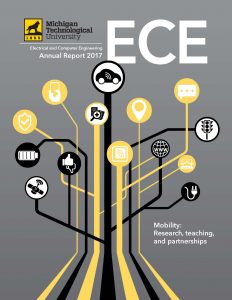
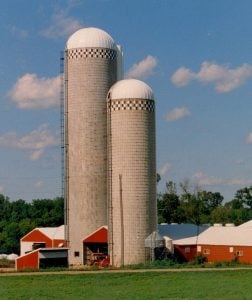 One of the widespread truisms found throughout current thought on management and organizations is that silos are really horrible and that we have to do everything we can to break them down. Just Google the term “silos” and see what I mean. The term refers to vertically integrated units within a larger organization that keep to themselves, do not communicate or play well with others, and in some cases actually compete with other similar units. They are blamed for all manner of organizational ills such as inefficiency, lack of innovation, and resistance to change. When I think about this mindset I envision Dana Carvey’s impression of George H. W. Bush on Saturday Night Live years ago saying “silos…bad…baaad…”
One of the widespread truisms found throughout current thought on management and organizations is that silos are really horrible and that we have to do everything we can to break them down. Just Google the term “silos” and see what I mean. The term refers to vertically integrated units within a larger organization that keep to themselves, do not communicate or play well with others, and in some cases actually compete with other similar units. They are blamed for all manner of organizational ills such as inefficiency, lack of innovation, and resistance to change. When I think about this mindset I envision Dana Carvey’s impression of George H. W. Bush on Saturday Night Live years ago saying “silos…bad…baaad…”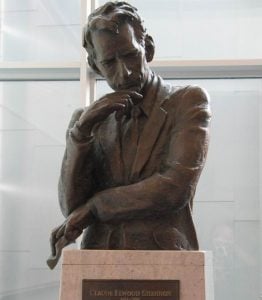 Read just about any description of research activity in the United States today, say from the National Science Foundation, and you are sure to find something about the importance of multidisciplinary or interdisciplinary work. The idea that people need to work together in teams and across traditional boundaries has become dogma in research communities, and casting one’s work in an interdisciplinary light has become all but required for obtaining research funding. Of course, I am all for people working together in teams when that makes sense, and for not letting boundaries get in the way of good work and collaboration. But, the emphasis on interdisciplinary work that has become so prevalent in recent years has gotten me to wonder – what makes an academic discipline, anyway? And who gets to decide?
Read just about any description of research activity in the United States today, say from the National Science Foundation, and you are sure to find something about the importance of multidisciplinary or interdisciplinary work. The idea that people need to work together in teams and across traditional boundaries has become dogma in research communities, and casting one’s work in an interdisciplinary light has become all but required for obtaining research funding. Of course, I am all for people working together in teams when that makes sense, and for not letting boundaries get in the way of good work and collaboration. But, the emphasis on interdisciplinary work that has become so prevalent in recent years has gotten me to wonder – what makes an academic discipline, anyway? And who gets to decide?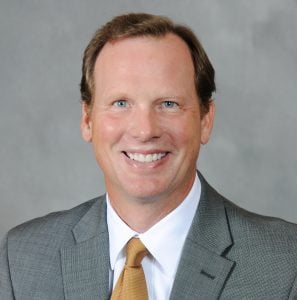 More than 360 bachelor’s, master’s and PhD recipients are expected to attend Midyear Commencement Saturday (Dec 16). Ceremonies will take place at 10:30 a.m. in the Wood Gym of the Student Development Complex.
More than 360 bachelor’s, master’s and PhD recipients are expected to attend Midyear Commencement Saturday (Dec 16). Ceremonies will take place at 10:30 a.m. in the Wood Gym of the Student Development Complex.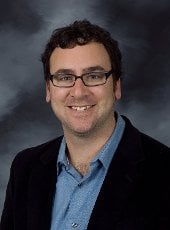
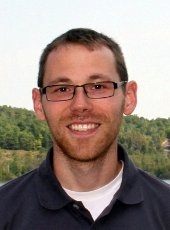
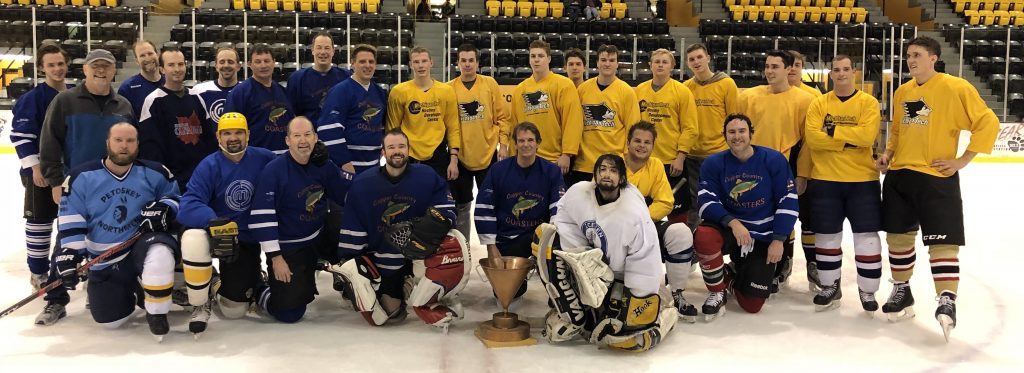 The faculty pulled out a thrilling 12-10 come-from-behind overtime victory in the 2017 edition of the annual ECE student-faculty hockey game, held at the MacInnes Ice Arena on Saturday, December 2. Both sides showed energy and enthusiasm in the first period, with goals see-sawing back and forth to a score of 5-4 with students in the lead at the end of the period. The defenses stepped it up in the second period, with only one goal scored mid-period by the faculty to even things up at 5-5, until the students scored two quick goals in the last 30 seconds to go ahead 7-5. In the last period, both sides battled to 10-8 with students on top with two minutes to go. The faculty pulled the goalie and scored two more goals to tie it up 10-10 with just seconds remaining. The game went to a 5-round shootout, which the faculty took in four rounds 2-0, for a final score of 12-10. Special mention goes to Mark Maroste for scoring two goals in regulation and one in the shootout, to Adam Webb for a hat trick in regulation and for the second and winning shootout goal, and to faculty goalie Brian Hutzler for turning away roughly 100 shots and shutting out the students in overtime.
The faculty pulled out a thrilling 12-10 come-from-behind overtime victory in the 2017 edition of the annual ECE student-faculty hockey game, held at the MacInnes Ice Arena on Saturday, December 2. Both sides showed energy and enthusiasm in the first period, with goals see-sawing back and forth to a score of 5-4 with students in the lead at the end of the period. The defenses stepped it up in the second period, with only one goal scored mid-period by the faculty to even things up at 5-5, until the students scored two quick goals in the last 30 seconds to go ahead 7-5. In the last period, both sides battled to 10-8 with students on top with two minutes to go. The faculty pulled the goalie and scored two more goals to tie it up 10-10 with just seconds remaining. The game went to a 5-round shootout, which the faculty took in four rounds 2-0, for a final score of 12-10. Special mention goes to Mark Maroste for scoring two goals in regulation and one in the shootout, to Adam Webb for a hat trick in regulation and for the second and winning shootout goal, and to faculty goalie Brian Hutzler for turning away roughly 100 shots and shutting out the students in overtime. 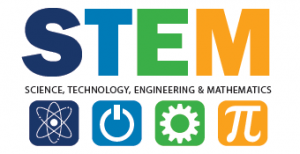 This week I want to follow up on my column from two weeks ago, before Thanksgiving, on the various ways that we use the words associated with my line of work: science, computing, engineering, technology, and mathematics. This is mostly a random collection of observations on the strange ways that we use these words, without a whole lot of practical solutions. Think of it as the grammar maven (see FWF 06/16/2017) meeting the engineering professor.
This week I want to follow up on my column from two weeks ago, before Thanksgiving, on the various ways that we use the words associated with my line of work: science, computing, engineering, technology, and mathematics. This is mostly a random collection of observations on the strange ways that we use these words, without a whole lot of practical solutions. Think of it as the grammar maven (see FWF 06/16/2017) meeting the engineering professor.
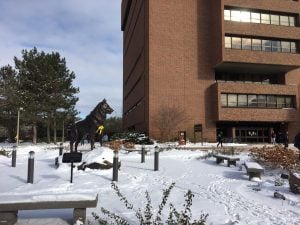 A couple of weeks ago I reported with barely contained glee that winter was on its way. I was right. We got a few inches of additional snow this past week, and for the time being it is sticking around. Thursday night temperatures plunged into the single digits in the western part of the Upper Peninsula. The cross-country ski trails at Michigan Tech are open, and I plan to be out there on Saturday. It’s a good time to make sure I have all the right gear, or at least remember where I put it at the end of the season last year. It’s nice to have the ski season start a little early for a change.
A couple of weeks ago I reported with barely contained glee that winter was on its way. I was right. We got a few inches of additional snow this past week, and for the time being it is sticking around. Thursday night temperatures plunged into the single digits in the western part of the Upper Peninsula. The cross-country ski trails at Michigan Tech are open, and I plan to be out there on Saturday. It’s a good time to make sure I have all the right gear, or at least remember where I put it at the end of the season last year. It’s nice to have the ski season start a little early for a change.